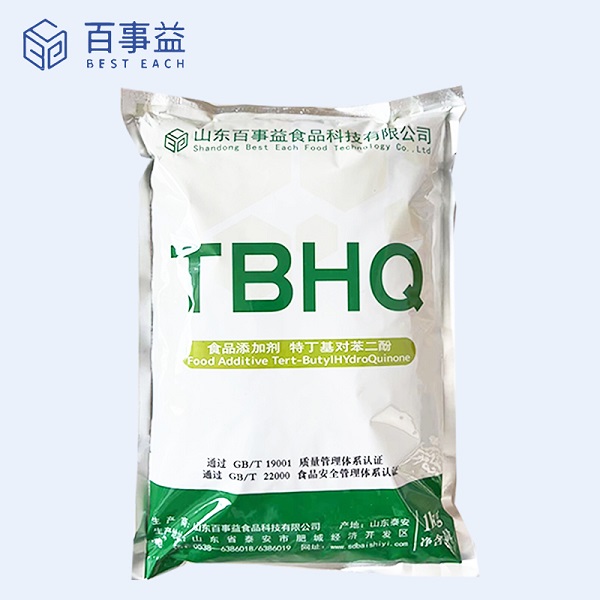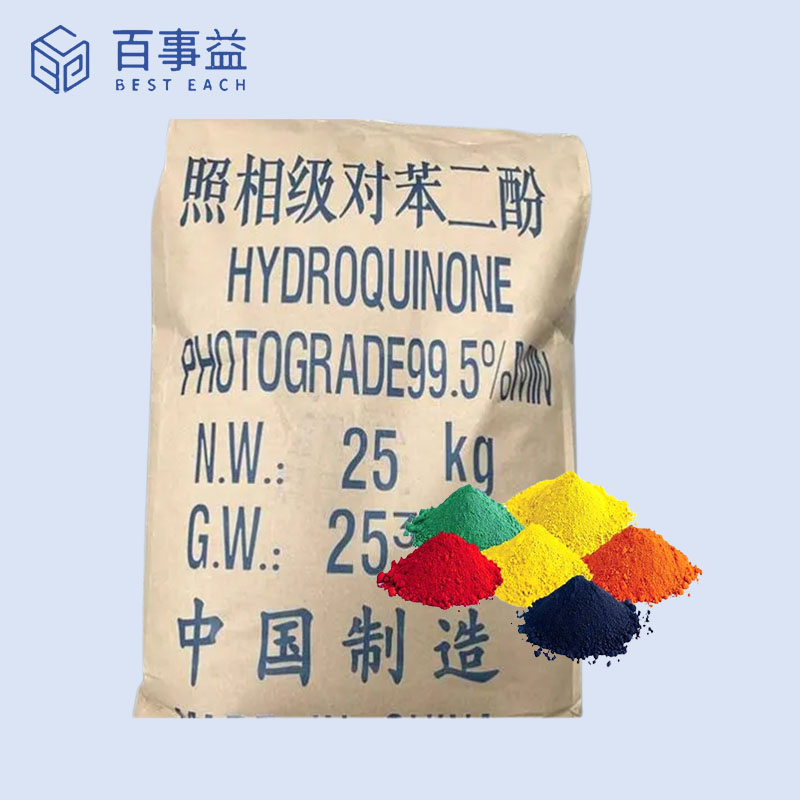Synthetic Anthraquinone Dyes
T-butylhydroquinone, abbreviated as TBHQ, has a molecular formula of Cl0H1402 and a molecular weight of 166.22. [1] It is a white to light gray crystalline or crystalline powder with a very slight special odor. It is soluble in ethanol, acetic acid, ethyl ester, isopropanol, ether, and oils, and is almost insoluble in water (25 ℃,<1%; 95 ℃, 5%). TBHQ is an oil soluble antioxidant that can prevent or delay the oxidation and deterioration of fats in food. As a food additive, TBHQ has been used in more than 20 countries such as the United States.
It was approved for use in China in 1991. Enterprises producing tert butyl hydroquinone both domestically and internationally include Guangdong Food Industry Research Institute, Taibang, Eastman in the United States, Camlin in India, and others. At present, the production of tert butyl hydroquinone both domestically and internationally adopts the tert butylation method of hydroquinone, as shown in Figure 2.
Tert butyl hydroquinone (TBHQ), also known as tert butyl hydroquinone, is a white crystalline powder with a melting point of 126.5-128.5 ℃ and a boiling point of 300 ℃. Its CAS number is 1948-33-0, and it is easily soluble in ethanol and ether. It is the most effective antioxidant for most oils, especially vegetable oils. T-butylhydroquinone, abbreviated as TBHQ, has a molecular formula of Cl0H1402 and a molecular weight of 166.22. [1] It is a white to light gray crystalline or crystalline powder with a very slight special odor. It is soluble in ethanol, acetic acid, ethyl ester, isopropanol, ether, and oils, and is almost insoluble in water (25 ℃,<1%; 95 ℃, 5%).

Oil antioxidants are a type of substance that can prevent or delay the deterioration of oils or fatty foods, extend their shelf life, and tert butyl hydroquinone (TBHQ) is a high-quality edible oil antioxidant. The article comprehensively introduces the properties and synthesis of tert butyl hydroquinone, as well as its applications in various fields.

Fully dissolve and evenly disperse TBHQ in oil, otherwise it will affect the antioxidant effect.
Some organic acids and their derivatives can enhance the activity of TBHQ. It is better to mix it with 0010.02% citric acid.This product cannot be mixed with PG (Propyl Gallate) for use. Avoid using this product under strong alkaline conditions.






